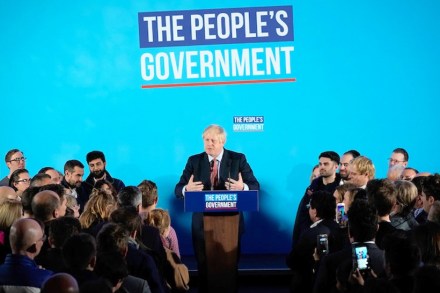Corbyn scored a lasting triumph at PMQs
Things got pretty tasty at PMQs. Jeremy Corbyn was well prepared and emerged, messily, as the victor. It started badly for the Labour leader. Ironic cheers rang out when his name was called. Up he stood. But instead of building to a joyous climax, the cheers dropped to nothing. Stark silence followed. This seemed amusing and was greeted by facetious guffaws. Poor Jezza. Even his pauses are laughing at him. He brought up the 17 foreign-born criminals deported to Jamaica. A tricky case has emerged. A boy who arrived in Britain aged five, was coerced into peddling drugs and was given a jail-term. But since his release he hasn’t re-offended.




















